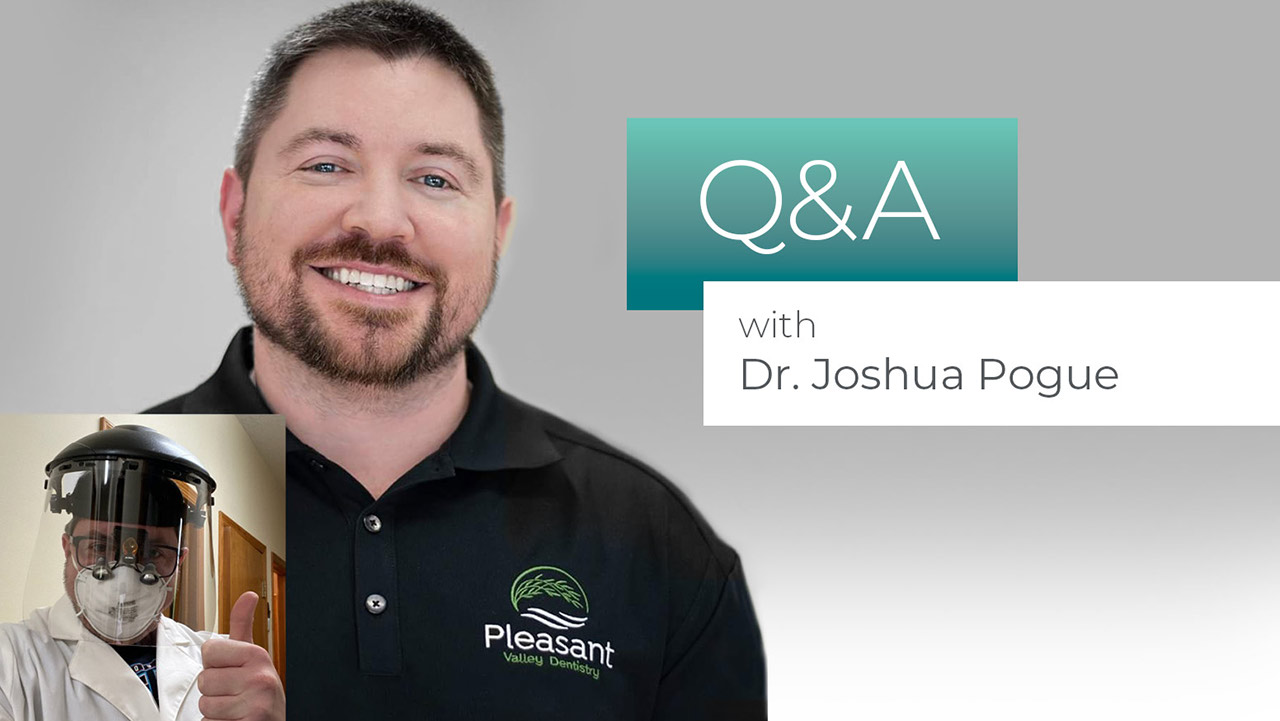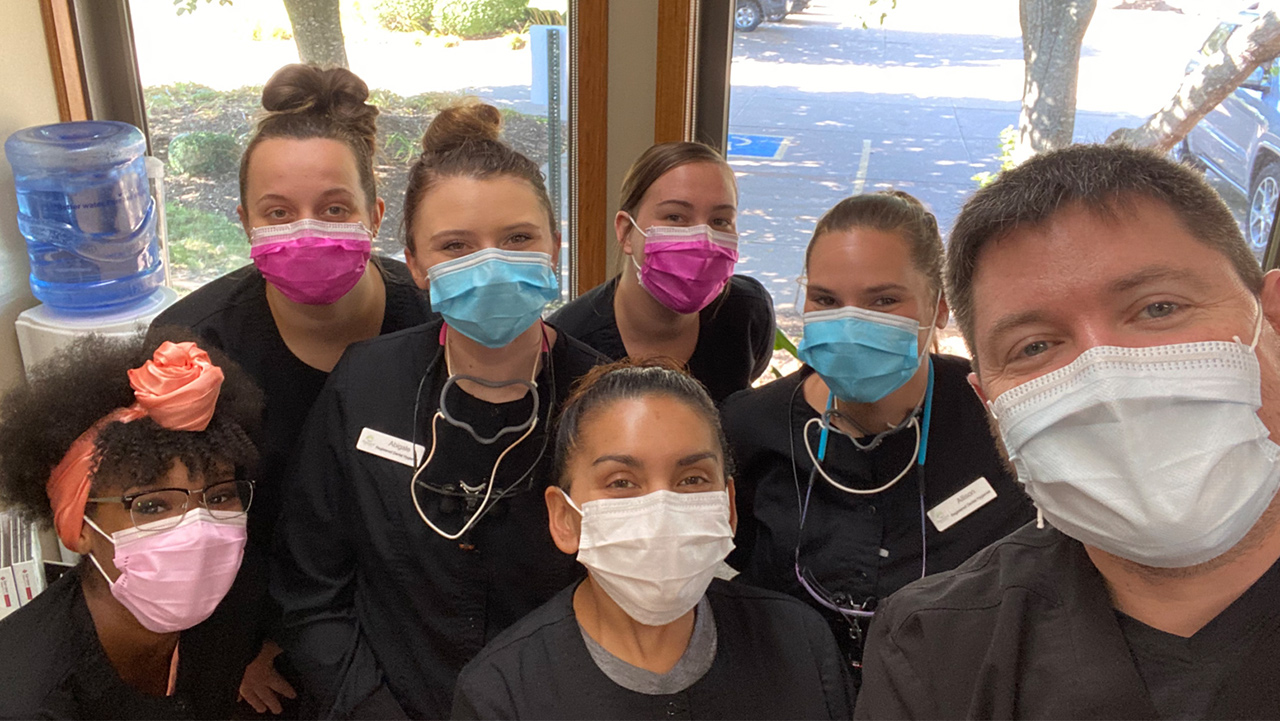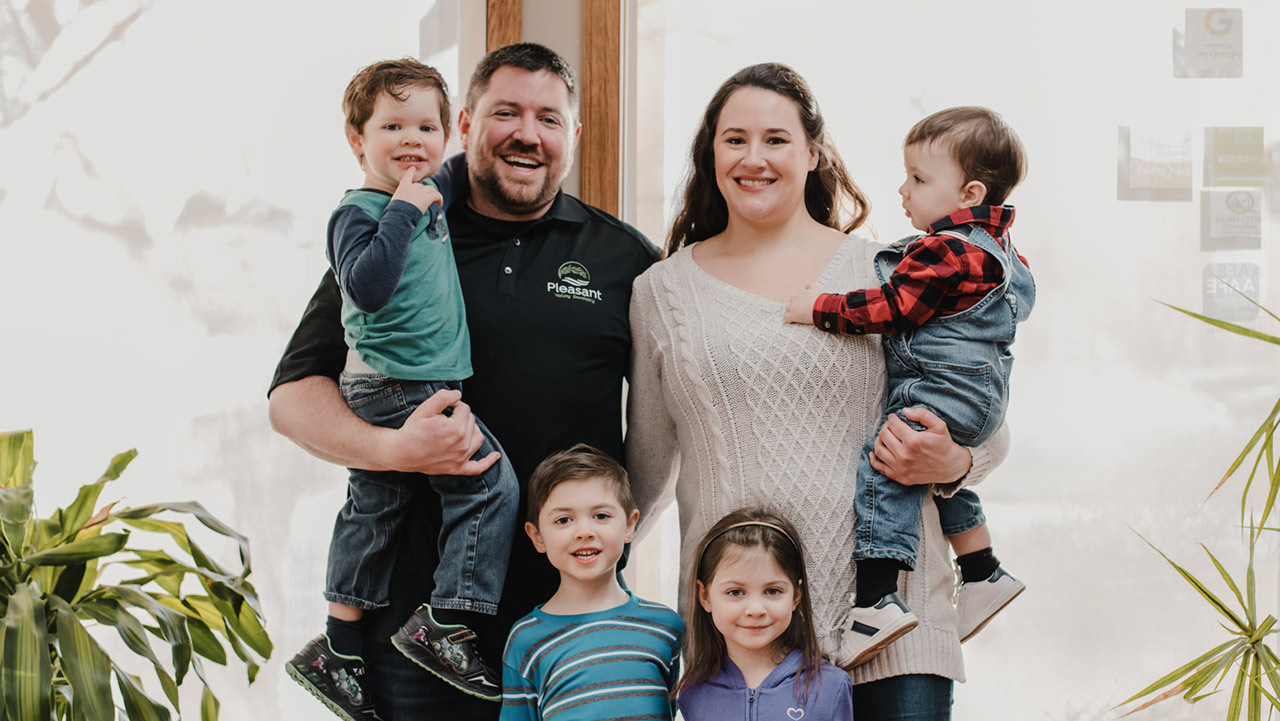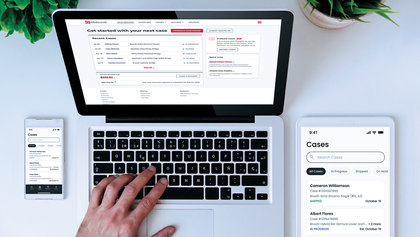2201 Dupont Dr., Irvine, CA 92612
© 2025 Glidewell. All rights reserved.
800-854-7256 USA
Folks know Dr. Joshua Pogue through social media. And now, many know him for all-hours care.

The mandate to stop elective dental treatments in Iowa was issued in March, and Dr. Joshua Pogue had a decision to make.
Many practices were closing in his area, the Quad Cities region that spans southeastern Iowa and northwestern Illinois.
Would he stay open?
Yes. And he used social media to connect not just with patients but with the community at large. Over the next several weeks, a couple hundred patients came through his doors for emergency treatment.
Here, he shares what that time was like and provides social media tips for fellow dentists.
Kiali Wong Orlowski: Let’s start by talking about your thriving online presence. You have an on-trend website, a five-star rating from 180 Google reviews and nearly 500 followers on Facebook. And your Facebook postings are really heartwarming. How does your online presence reflect your approach to dentistry?
Dr. Joshua Pogue: Well, thank you for saying all those nice things. The biggest thing that we try to do is to just be authentic on our social media. When I bought the practice about two years ago, one of those marketing companies was doing all the posts. And they were those generic posts that we’ve all seen.
Like the stock photo of an overdressed businessman who’s holding his jaw and wincing in pain, with little red arrows coming out. And it would be the same jargon that you see everywhere else: “Hey, do you have a toothache? Call us at fill-in-the-blank dentistry.” And it’s usually five paragraphs that nobody reads.
When I’m sitting at home on social media, those are the ads I just flip right by. I think, inherently, nobody wants to be marketed to. So I decided my team and I would start posting, and use social media the way that normal people use it.

KO: What is your workflow? Are you doing a lot of these posts yourself?
JP: Yeah, I would say 90% are posts that I make. We get patients’ permission before using pictures. And my team and I use an iPhone that is primarily for the practice’s social media. The team has really jumped on board, too. They’ll grab photos and show me things they want to post.
KO: So you have final sign-off.
JP: Yeah, exactly. We share pictures of us, the office, holidays, birthdays and anytime a patient brings in a gift. And we post “before” and “after” pictures, but not really in a marketing sense. Instead, it’s more like, “Hey, this is a case that my patient is really happy with and I’m really proud of, and I just want to share it with people.”
And now, we get far more patient feedback. People come in saying: “Hey, I saw this ‘before’ and ‘after.’ I didn’t know you do that.”
KO: What are three things you can suggest to colleagues who are looking to ramp up their own social media presence?
JP: One thing is to know who you are. It’s important to identify what’s special about your practice and what you want to put out into the community.
For me, one of my most important values is service. Before I was a dentist, I was in the Marine Corps for four years. And before that, I was a social worker. And before that, my dad was a major part of the community and was involved with trying to help others. Service has always been a cornerstone of my life, and on social media I try to show how I’m here to serve you. I'm here to serve the community.
And then know who your patients are. Know the audience you’re trying to reach.
Once you have figured out those two things, then just develop a plan of what you’re going to do. For my practice, that means using Facebook and Instagram, and a little bit of TV advertising.
KO: Turning to March 2020, that was when you had transitioned to solely treating emergency cases. And in addition to your work as a full-time solo practitioner, you and your wife have four young kids. How did you get through that?
JP: The emergency time was chaotic. I always push two things for my team. The first is that we have to remain calm, which comes from my Marine Corps training. And the second is to be consistent.
When a patient asks me something, I want my answer to be the same as the assistant’s and the hygienist’s answers. So as the owner, I helped develop our philosophy. I would say in the morning: “We’re going to remain calm today. If anyone asks about coronavirus or what we’re doing, this is the answer.” And every day we stuck to that consistent message.
KO: That’s important to provide such steady communication for patients.
JP: Yeah. Then, when dental offices in Iowa were forced to stop providing elective procedures, I came in the next day, and we had to cancel the entire day. I had to lay off nearly my whole staff, minus two. It was incredibly tough, with a lot of restless nights.
During that time of only seeing emergency calls, we were also doing interviews with local television stations, a couple of commercials and a lot of Facebook posts. We were one of the few dental offices that were open in the area. So we were getting just bombarded by patients. There would be days where I’d start at 7 in the morning and be here until 10 o’clock at night. But I got to really serve my community, and that’s what I became a dentist for.

KO: What was the biggest challenge during that time?
JP: At that point, we didn’t know much about the virus. And like you said, I’ve got four children and my wife at home, and I have no idea what I’m bringing them every night.
I did everything I could to prevent cross-contamination, including using a separate shower. After a couple of weeks and then a couple of months, it became a lot more comfortable. We felt a lot safer just using the PPE and following all the precautions that we’re using.
KO: And then you were able to resume elective services in May. What have you been focusing on since then?
JP: Since May, my original six-person staff has grown to eight employees. I hired another assistant and a new hygienist, because we’re catching up on hygiene appointments. We’ve also added an extra day, so we’re now open five days a week. We’re all kind of spread out over different days, just so that we have space, and can operate freely and safely.
And people are continuing to call us for urgent cases because they’ve heard about us through family members or seen us on social media. So it’s good that we built that reputation. And I really like being the dentist who can help you out when you’ve got an emergency.
Send blog-related questions and suggestions to hello@glidewell.com.


